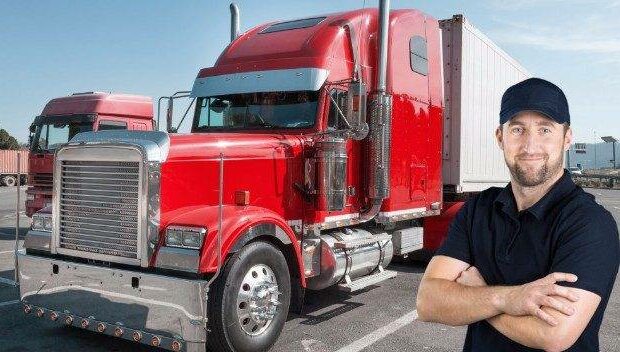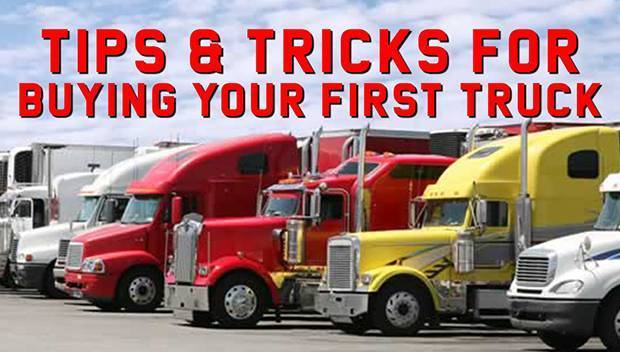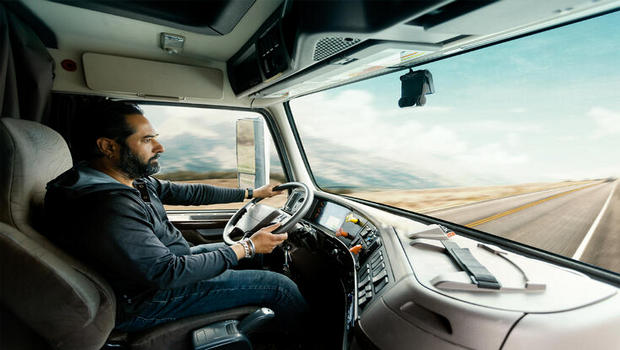
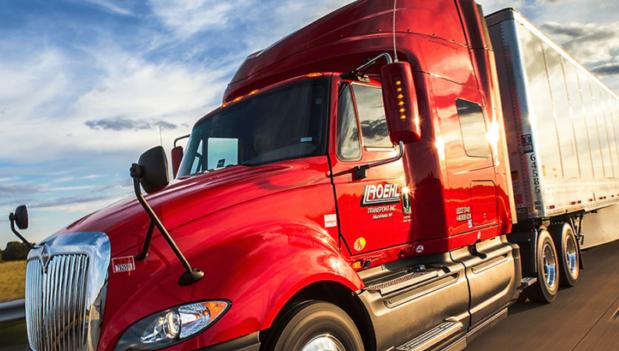
March 3, 2022

1134 Views

8 min read
How to Become an Owner-Operator Truck Driver
Owner-operators, unlike company truck drivers, are independent. As an owner-operator, you can be your own boss and potentially earn as much as you like, but you’ll also need to invest in trucks and equipment. Company drivers won’t have to buy or lease their vehicles or manage their business expenses. Still, there are risks and benefits to each approach.
Owner-operators have freedom in terms of what they can accomplish. They also bear responsibility for their company and any employees they hire. Many owner-operators started as company drivers before deciding to go independent. You can use these steps to see if you’re ready to go independent:
Step 1: Evaluate Your Situation
Commitment and time are essential to running an independent business. Starting a business without knowing your limits and lifestyle will set you on a path to failure. Most company drivers who have gone independent describe their transition as challenging. The responsibilities will grow exponentially. When you work for a freight company, you have fewer responsibilities. You park your truck and head home after dispatch. But that is not the same for owner-operators who buy the trucks and pay for their acquisition, insurance, maintenance, and repairs.
Becoming an owner-operator is more than a career; it is a way of life, and you should set long-and short-term goals for starting your own business, as well as consider the following:
Physical health: Can you be on the road for long periods?
Family: Over-the-road (OTR) truck drivers may be on the road for weeks at a time, away from their families, friends, and homes. As a result, it’s a challenging professional decision if you’re a single parent or caring for an elderly family member.
What about your family life and home time?
Do I have my family’s support?
Financial stability:
Do you have a business plan?
What are the tools needed to make your business plan a success?
Are you financially secure?
Do you have a cash reserve?
Have you thought about opening a maintenance account when you buy the truck?
Other: How well do you know the rules of the road?
It will undoubtedly help you if you have experience as a driver in the industry. Company drivers with three to five years of experience are the best candidates for going independent since they know the industry.
Step 2: Obtain Documentation
Obtaining a commercial driver’s license is not as easy as obtaining a driver’s license. It is not difficult, but it is more complex than obtaining a standard driver’s license. To become fully licensed, you must pass a physical exam, choose your license type (most likely Class A), pass a knowledge test, get your CDL permit, and then pass a CDL skills test, which is the last step.
Consult your local legislation to ensure that you meet all requirements for obtaining a CDL. For the majority of states, the procedure is as follows:
- At least 21 years of age.
- Obtain your driver’s license.
- Obtain your CDL permit.
- Consider enrolling in a CDL training program.
- Pass a road skills examination.
Step 3: Lease Vs Purchase
If you’ve made the choice to become an owner-operator, your next major decision will be whether to lease or buy your vehicle. Choosing whether to lease or purchase a vehicle does not have to be difficult. Many fleet owners lease their vehicles, while others own them altogether.
Choosing between leasing and purchasing a vehicle often comes down to the intended use of the truck and how much money you want to invest.
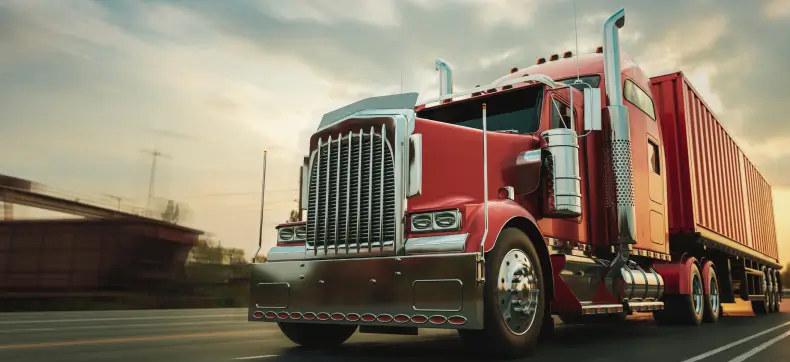
FOR COMPREHENSIVE FLEET
MANAGEMENT SOLUTIONS
Lease
Leasing a vehicle is similar to paying rent on a monthly basis.
The monthly payment is for the use of a commercial vehicle, but no ownership equity is ever achieved.
The leasing company owns the car that you rented, and they will keep making money from your use of it.
Pros
- Lower initial investment
- It requires far less commitment than purchasing a truck.
- Relieves you of issues linked with vehicle ownership.
Cons
- You can not modify it as you want. It’s technically not yours.
- It might end up costing you more than it would have if you had just bought a truck from the start.
- You might not get enough miles to make lease payments.
Purchase
When purchasing a truck, keep in mind that you’ll need to narrow down your selections to get the ideal one. Knowing what model you want ahead of time can also help save you money.
Pros
- You own and can modify the truck.
- Commercial truck insurance is often less expensive than lease truck insurance. Some lenders may not ask for a down payment when you buy a truck, depending on your credit score and how much money you have.
- When you purchase a truck, you build equity with each month’s payment.
Cons
- You are subject to heavy taxation when purchasing a vehicle.
- The insurance and repair bills are your responsibility.
- If you purchase a truck without a company or factory warranty, you may pay outrageously high repair costs if something goes wrong with it.
You can consult a tax professional before committing to leasing or buying a truck.

Step 4: Obtain Documentation
The FMCSA assigns you a U.S. Department of Transportation (USDOT) number. It designates you as a carrier engaged in interstate commerce. The FMCSA website is where you can apply for your USDOT number. Before you register for a USDOT number, you must first establish a legal business, since the FMCSA will interrogate you about your company’s activities.
You then apply for your motor carrier (MC) number. It designates you as a “for-hire” carrier who transports products on a contract-by-contract basis. Unlike a company-employed driver, you will work independently and be your own boss.
Step 5: Strategize
Transitioning from a company driver or even just starting off as an independent owner-operator will cost you a lot, and as a business owner, you should look for a strategy to maximize your profits or revenue to outweigh operational expenses. Large expenses may include:
- Vehicle insurance
- The cost of fuel
- Compliance with various regulations
- Vehicle maintenance and repair
Step 6: Invest In Yourself
Consider what equipment or tools you could need for your business. Most loads, for example, will require the use of a truck and a trailer, but longer or wider loads may require the use of specialized equipment. A truck and trailer can be purchased or leased from a trucking company.
Leasing
Owner – operators who have been driving for at least ten years might consider leasing equipment. Your leasing costs will most likely be reduced if you have some experience. You will, however, need to have a good credit score.
If you choose to lease, you may be required to work for the firm from whom you are leasing as part of the lease agreement.
Purchasing
The benefits of ownership and tax savings make purchasing company equipment tempting. Having said that, it is suggested that owner-operators own their transportation equipment rather than lease it, but the large initial expenses mean that this choice is not for everyone.
On The Open Road
You have the potential to be a successful truck driver. These steps provide a basic structure for you to follow in order to achieve your objectives as an independent truck driver. Continue your studies and networking because there is money to be earned in the trucking industry, and you might be the next independent truck driver living your dreams on the open road.
Do owner operators make good money?
Owner-operators earn more per mile than company drivers. While they earn more per load, they must also cover all business and trucking expenses. Owner-operators are also on their own when it comes to waiting, breakdowns, health insurance, and other issues. So, they aren’t obliged to work or be dispatched. But they need to contract enough cargoes at high enough prices to cover their costs and make a livelihood. It means they take on all the business ownership risks. The amount of money an owner-operator makes is directly related to how well they run their business.
What influences how much an owner-operator makes?
Experience
Trucking companies prefer to hire drivers who have a sufficient amount of experience behind the wheel of a truck. While they may give opportunities to novice drivers from time to time, it is the more experienced drivers who get the best jobs.
The trucking company
Private carriers and regional LTL carriers tend to offer better pay and benefits.
Researching which companies pay the highest rates, offer the best benefits packages, and provide regular pay raises can help truck drivers improve their salaries.
Location
Trucking companies compensate drivers who operate in rough terrain or sparsely populated areas. Due to the fact that many of these areas are far from emergency services and are prone to highway robbers, drivers should be extra careful when on the road.
Type of pay
Although the number of trucking businesses who pay per hour rather than per mile is “very small,” some do. Truck drivers can nearly always make more money if they use a pay-per-mile scheme.
Type of truck
Experienced drivers of flatbed, tanker, and refrigerated trucks can often demand higher pay due to the special skills and knowledge required to handle these vehicles.
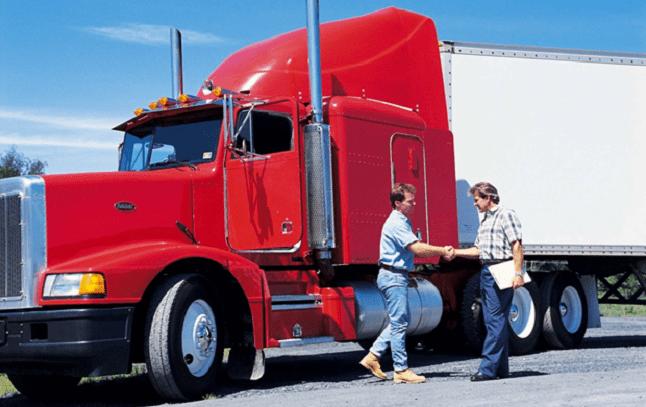
Increase Your Truck Driver Earnings
Keeping your expenditures to a minimum is the simplest method to boost your owner-operator revenue. Expenses might be fixed or variable.
Payments for the truck
Insurance,
And permits are all fixed expenses.
Fuel expenditures, food and drinks are examples of variable expenses.
Sign up for Exclusive Trucking Tips
Test






